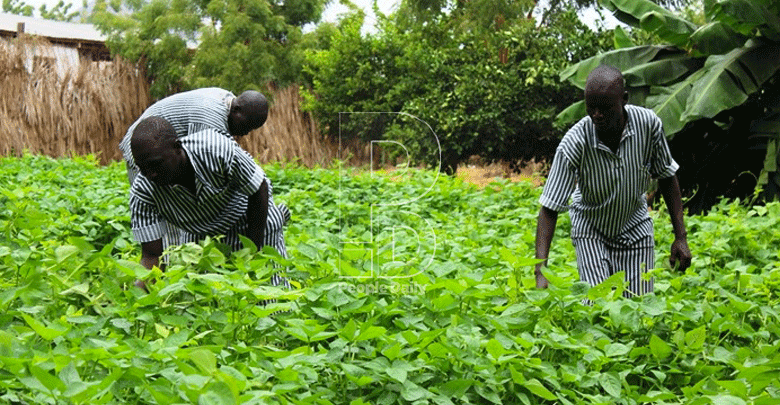Alarm as lack of funds hits training projects in prisons

The Kenya Prisons Service (KPS) is unable to fully rehabilitate prisoners because of shortage of funds for vocational training and skills development in various fields.
Experts now warn that without proper rehabilitation, the prisoners risk getting caught up in a vicious cycle of reoffending, reconviction and social rejection.
Reports indicate that most prisoners relapse into criminal behaviour, even after serving their jail terms.
However, the actual rate of relapse cannot be established based on the arrest data since not all crime is discovered.
On April 11, 2021 for example, detectives shot dead three suspects and recovered an AK47 rifle.
One of the slain suspects had been released from Kisumu Prison on July 30, 2020 after serving a 14-year sentence.
He had been convicted of robbery with violence. The DCI is also holding another robbery suspect, Paul Muthui, who in 2013 was convicted of a robbery with violence charge.
Authorities also warn that idle prisoners are a threat to prison security and the public at large.
However, the challenges including budget shortfalls and the punitive philosophy of prisons have made prisons much more unpleasant and less likely to rehabilitate prisoners.
“Rehabilitation activities, farms and industries are at a halt due to non-funding thus defeating the correctional and rehabilitation responsibilities of the service,” a report by the service read.
“Prisoners who have not gone through rehabilitation programmes during their imprisonment are highly likely to reoffend, beating the purpose of correctional services and pose a threat to national security,” the report added.
The revelations came as Interior Cabinet Secretary Fred Matiang’i announced that through the State Department for Correctional Services, the Prisons Services had already settled 50 per cent of the Sh6.2 billion outstanding claims accrued between the financial years 2011/12 and 2017/18.
“An additional 25 per cent has gone into the IFMIS (Integrated Financial Management Information System), which means by the end of this month, we will have paid 75 per cent of all our pending bills.
The remaining 25 per cent will be paid by the end of this financial year,” Dr Matiang’i said, adding that only Western and Coast regions are remaining.
Pending bills
According to the CS, the process has dragged on for almost two years because of a rigorous verification exercise to establish the eligibility of the suppliers and contractors duly owed for goods supplied and or services rendered to the Kenya Prisons Service.
Many small businesses have regrettably been affected because of the past convoluted systems, which Matiang’i reiterated have been addressed.
He said: “In the past one year, we have not accumulated any pending bills. Now we are not stressing anyone…going forward, we will spend what we have been allocated and we must remain disciplined as public servants in the manner in which we handle resources.
Never again will the correctional services accumulate pending bills.”
The Prisons Act requires the service to rehabilitate both adult and youthful offenders and support the social reintegration of prisoners into society.
Some of the measures put in place by the government include establishing a revolving fund for prison farms and industries to support all prisoner rehabilitation activities in the 129 penal institutions through purchase of training materials and paying for their trade tests.
The products from training are then sold and money is deposited in the revolving fund account.
However, less than 30 per cent of the industries have been funded in the last two years.
“This reduced release of funds from the revolving fund which has affected the rehabilitation and safe containment of prisoners,”the report stated.
In the financial year (FY) 2019/20 out of 106 prison industries, only 29 were funded with a cumulative total of Sh214 million, of which 20 stations were funded to implement development projects under development budget to a tune of Sh44 million.
In the FY 2020/2021, only 15 stations were funded with a cumulative of Sh 38 million of which 14 stations were to implement development projects.
For prison farms, in the FY2019/2020, out of 89 prison farms, only 14 were funded with a cumulative of Sh89.6 million and in FY 2020/2021, only 16 were funded with a cumulative total of Sh 92 million of which only Sh26 million has been released to date.
The service wants the prioritisation of the revival of the timber kiln, funds for training inmates and paying for their trade tests by the National Industrial Training Authority (Nita).
However, in the last two years, vocational training and testing has not been undertaken. The government has also said that it does not intend to fund the grade tests.









